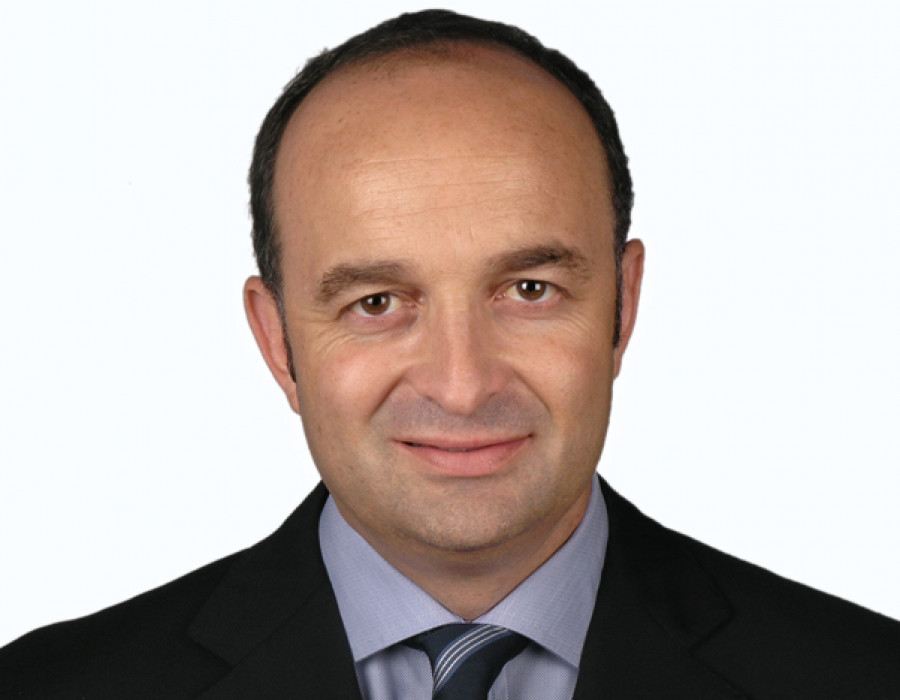"We believe in promoting strategic autonomy in Spain and Europe for critical suppliers"

AutoRevista.- What are the requirements and criteria for the approval of suppliers of the different links in the value chain in this era of transformation towards a more digital and sustainable industry?
Alberto Moreno.- At Gestamp, we have a supplier approval system with different requirements depending on the criticality of the supplier. We have a standard approval and an extended approval that is more complete in terms of requirements. We take into account the requirements of all our stakeholders, covering legal and compliance, financial, ESG, quality, logistics and IT aspects.
With this approval system, we can classify our suppliers according to the risks analysed and have an assessment of our suppliers at all times, giving visibility to our entire organisation.
Those suppliers who do not meet our approval criteria will not be able to participate in any purchasing process.
AR.- How is the relationship between client and supplier evolving, especially in innovation, in order to achieve greater and better levels of partnership?
A.M.- At Gestamp, for some time now, we have been participating with our customers in co-engineering projects where we offer solutions focused on increasing vehicle safety and reducing vehicle weight, with the consequent savings in consumption and emissions, something that is in line with the company's strategic lines in terms of ESG. This joint work from the conception phase of the vehicle design has strengthened our strategic supplier relationship.
AR.- Are you working on a dynamic focused on creating critical supplier networks closer to the production centres?
A.M.- At Gestamp, as a global company, we believe in promoting in Spain and Europe a strategic autonomy for these critical suppliers, logically without renouncing sustainability and digitalisation as competitive pillars of a modern industry in Spain and Europe.
AR.- In what way are Big Data tools contributing to achieving better levels of efficiency and competitiveness in joint customer-supplier work?
A.M.- We are developing pilot projects, some of which are already a reality in series, with our main customers where we share data that allow them to improve efficiency and quality levels. For example, we have a project already implemented in Spain where we share some process parameters with a customer and this allows them to adapt their assembly line according to the geometry of our products.
With this we have managed to reduce considerably the working times in their assembly line, as it allows them to adapt their line before the arrival of our products. This is thanks to current Big Data technologies that allow the processing of large amounts of data in a very short time.
At Gestamp, innovation is capital as a lever for industry traction, and in the case of AI and Big Data engineering, the company is a leader in its research and promotion. It is important to emphasise that Gestamp is a founding member of IndesIA, the association that promotes the use of data and Artificial Intelligence in companies and SMEs in Spanish industry.
AR.- What is the value of the relationship with automotive clusters or other entities that bring together supplier companies with different profiles?
A.M.- Automotive clusters are essential because their aim is to seek solutions to the problems that arise in the industry. They are meeting places where companies, whether large or small, manufacturers or suppliers, share knowledge with each other. Therefore, the entire value chain of the sector ends up benefiting.
And at a time when sustainability and digitalisation are basic to understanding business, companies like Gestamp have the responsibility to lead the market with their experience to help the business fabric benefit from their own know-how to find innovative solutions and promote cooperative initiatives to increase competitiveness.
AR.- In the specific case of the Spanish supplier industry, how do you think it should continue to evolve so that Spain remains an attractive country for vehicle manufacturing?
A.M.- The Spanish supplier industry has a global reputation, based on its experience and the trust of its customers. We must continue to focus on sustainability and digitalisation in order to remain competitive in terms of efficiency and the quality of our products.
Lea esta entrevista en castellano

EQUIP AUTO París 2025 celebrará su 50º aniversario, con el patrocinio de Emmanuel Macron, presidente de la República francesa, con una edición histórica y festiva. Del 14 al 18 de octubre de 2025, en Paris Expo Porte de Versailles, la feria congregará a más de 1.400 expositores y marcas en 100.000 m² y espera la asistencia de 100.000 profesionales.

El Centro Tecnológico de la Energía (ITE) es un referente en campos de investigación claves en la actual transformación de la movilidad, como nos explica María Porcel, responsable de línea I+D de materiales para hidrógeno de ITE.

CUPRA ha renovado sus modelos Formentor, León y León Sportstourer, combinando un diseño atrevido con tecnología inteligente y de vanguardia. Las últimas novedades incluyen la avanzada iluminación Matrix LED Ultra, una mayor ayuda a la conducción gracias al asistente de tráfico cruzado delantero, y el nuevo color de carrocería Dark Void.

ASEPA ha presentado la nueva línea editorial de sus publicaciones con la creación del ‘Observatorio EVomarket’, que tiene como objetivo ofrecer a todos los profesionales de la automoción una información clara y rigurosa de la evolución del mercado de los vehículos electrificados en España vs. Europa.

Pirelli ha lanzado al mercado un neumático producido con más del 70% de materiales de origen natural y reciclado, entre los que se incluye caucho natural certificado por FSC (Forest Stewardship Council).
